Type 1 diabetic youth trained as peer educators
“We know the health system needs support at the community level, so to foster that support, we decided to equip young people with knowledge and skills to assist their peers within the community,” said Vivian Nabeta, founder and executive director of the Sonia Nabeta Foundation.
The Director General of health services at the Ministry of Heath Dr Charles Olaro poses for a group photo with participants after training. (Photo by Agnes Kyotalengerire)
___________________
A total of 50 adolescents living with Type 1 diabetes have been trained not only to manage their illness but also to provide psychosocial support to peers in diabetes clinics and within their communities.
Type 1 diabetes is an autoimmune condition in which the body’s immune system mistakenly attacks the pancreas, preventing it from producing insulin. Without insulin, glucose (sugar) from food cannot enter cells to provide energy and instead builds up in the bloodstream, leading to high blood sugar levels. This is a lifelong condition that requires daily insulin therapy to manage blood glucose levels.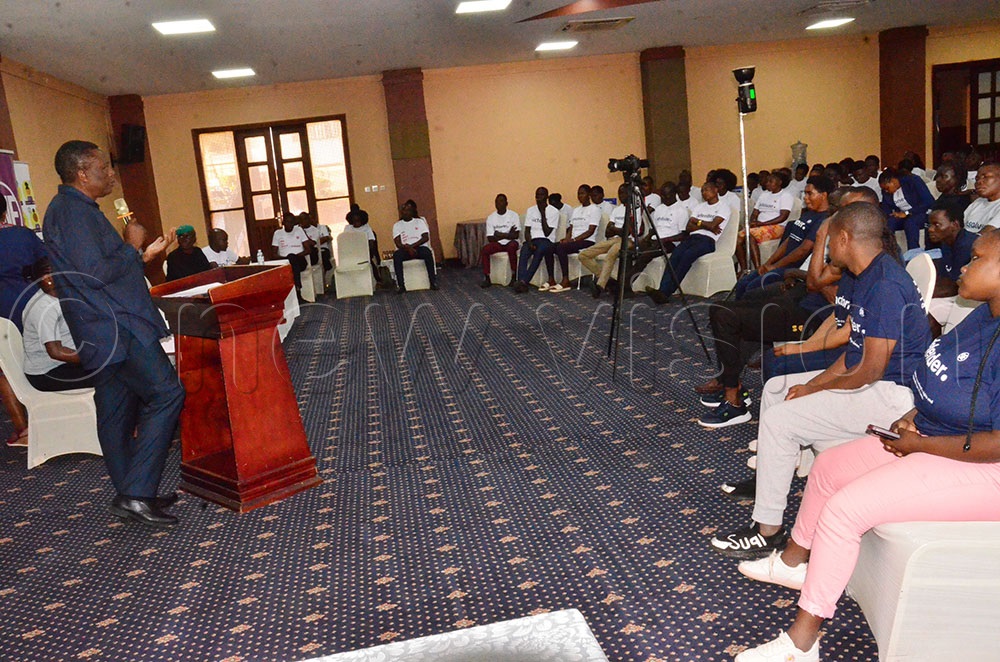
The Director General of health services at the Ministry of Heath Dr Charles Olaro adressing particiapants after training. (Photo by Agnes Kyotalengerire)
Co-named “Warrior Educators,” 45 of the adolescents were selected from Uganda, with the remaining five coming from Kenya, Zambia, and Zimbabwe.
“We know the health system needs support at the community level, so to foster that support, we decided to equip young people with knowledge and skills to assist their peers within the community,” said Vivian Nabeta, founder and executive director of the Sonia Nabeta Foundation.
Nabeta described a Warrior Educator as a peer with lived experience who can educate and support others. She noted that a similar intervention has shown success in helping young people living with HIV.
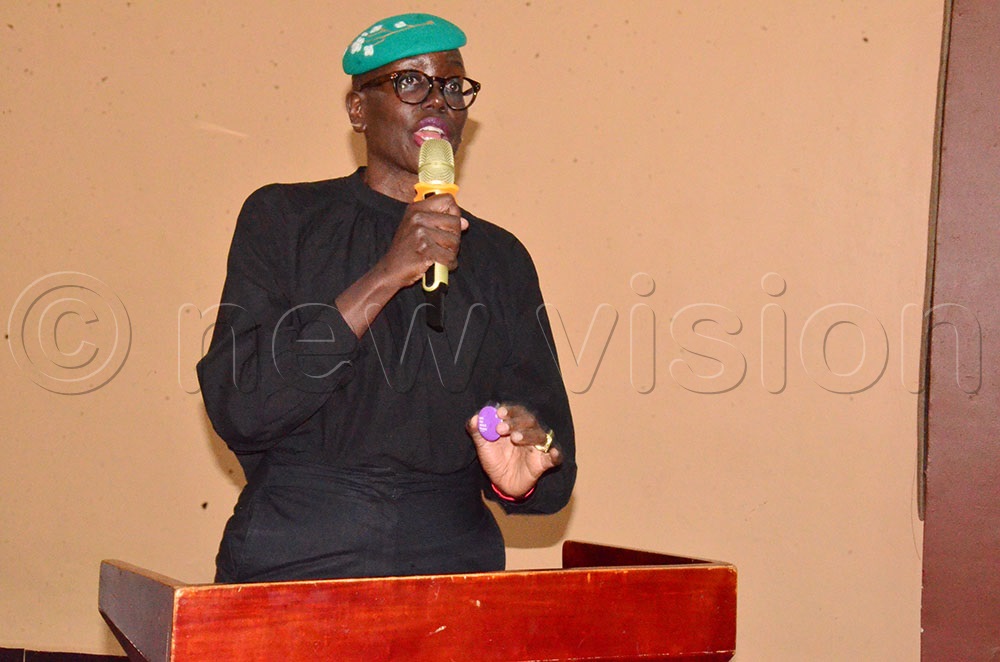
Vivian Nabeta, the founder and executive director of Sonia Nabeta Foundation addressing participation. (Photo by Agnes Kyotalengerire)
“We asked, why not harness lived experience? If it works for HIV, we can use it to build capacity for other conditions and community support,” she said.
During the five-day training, the adolescents learned the basics of Type 1 diabetes, disease management, ethics, communication, and teamwork. The program aims to motivate, encourage, and build a strong community of peer leaders to support both health teams and fellow adolescents.
Nabeta spoke during a meeting inducting the Warrior Educators into the Type 1 Diabetes Care model at Silver Springs Hotel, Bugolobi, on Friday, November 21, 2025.
Type 1 Diabetes Burden
Globally, over 1.2 million children under 20 live with Type 1 diabetes. In Uganda, estimates from the International Diabetes Federation indicate that more than 3,000 children and adolescents are affected.
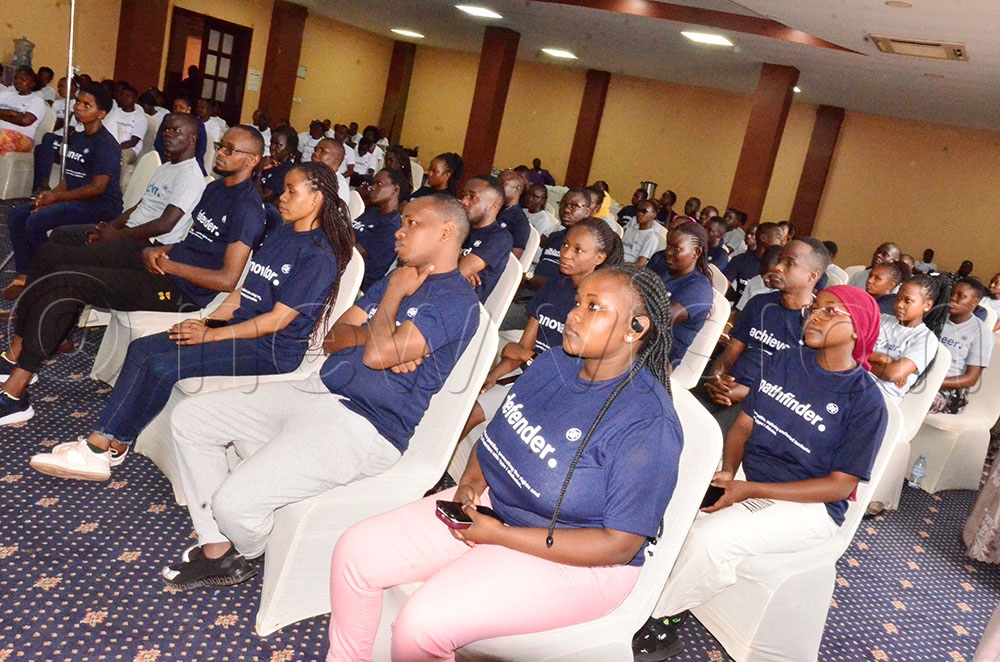
Adolescents battling with diabetes type 1 trained in care and management of the disease. (Photo by Agnes Kyotalengerire)
Dr Charles Olaro, Director General of Health Services at the Ministry of Health, commended the peer educators, noting that the knowledge and skills they acquired will safeguard them from lifelong complications. “Diabetes affects all organs, including the eyes, kidneys, and heart,” he said.
Dr Olaro added that peer educators will collaborate with community health workers, who are already equipped with blood pressure machines and glucometers. “You will act as a support system, especially when challenges arise with data interpretation after testing patients. The Ministry will ensure you are linked with community health workers,” he said.
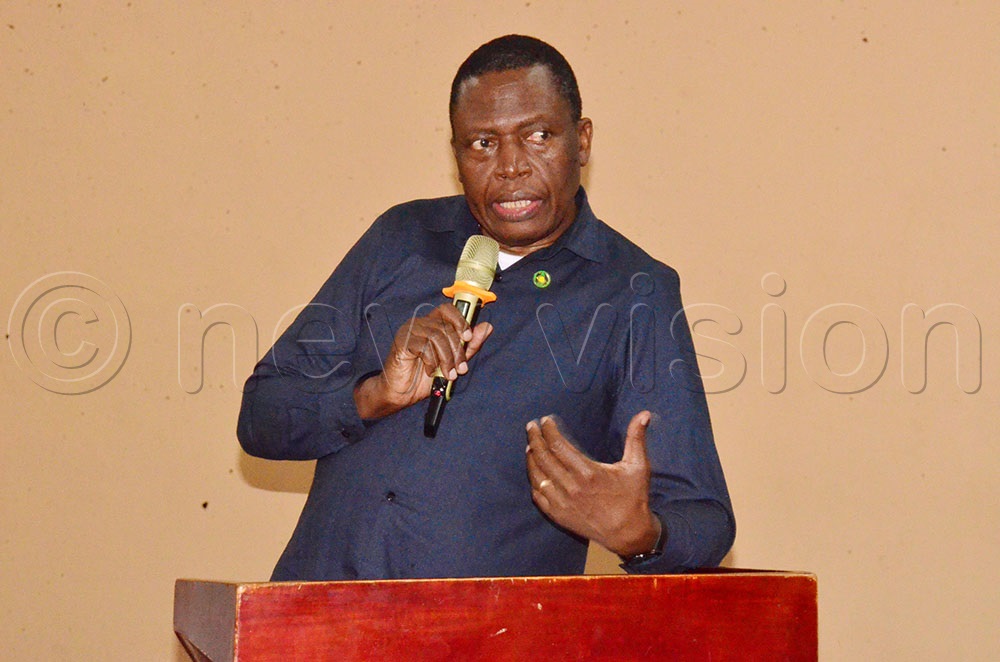
The Director General of health services at the Ministry of Heath Dr Charles Olaro adressing particiapants after training. (Photo by Agnes Kyotalengerire)
According to Ministry of Health guidelines, each parish should have two community health extension workers—one female and one male.
The Warrior Educator model, pioneered by the Sonia Nabeta Foundation, embodies the principle that adolescents with Type 1 diabetes are not merely beneficiaries of care—they are essential partners in delivering information and support in their communities.
“You are the bridge between the clinic and the community. You will be champions of awareness, empathy, and early intervention,” Dr Olaro emphasised. He further said the training promotes self-care, which begins with awareness.
Dr Olaro encouraged the adolescents to practice self-care by regularly testing their blood sugar levels and taking their medication on time, enabling better management of their condition and preventing complications.
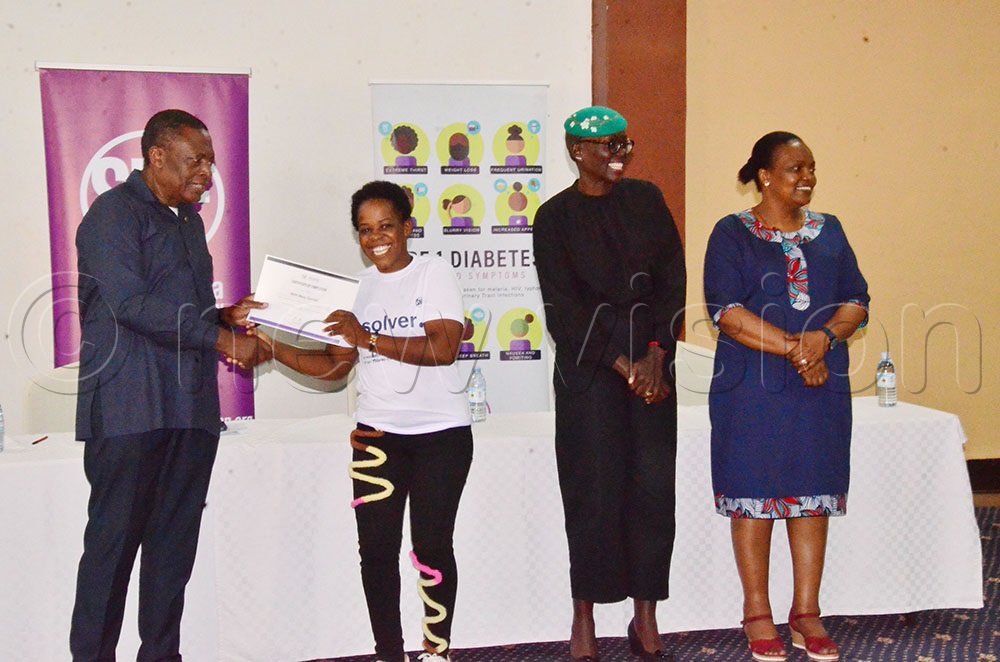
The Director General of health services at the Ministry of Heath Dr Charles Olaro handing over a certificate to a participant after training. (Photo by Agnes Kyotalengerire)
Dr Cissy Nalunkuma, a paediatric endocrinologist at Rubaga Hospital, described the training as timely, noting that non-communicable diseases (NCDs) are just the tip of the iceberg in Uganda. She emphasised the need for stronger advocacy and support for Type 1 diabetes.
Dr. Albert Kamugisha, a paediatrician at Naguru National Referral Hospital, said the peer educators will help reduce loss to follow-up in clinics and provide essential diabetes self-management education and support.
To conclude the training, all Warrior Educators were awarded certificates of completion.